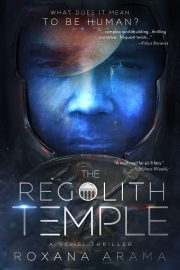Guest Post: 60 Rules for Short SF (and Fantasy)
A “mainstream” short story can be about anything: a mood, a character, a setting, even a flashy writing style. A genre (SF or fantasy) short story is about an idea. The fictional elements (character, plot, setting, etc) are only there to dramatize the idea. Here are the rules for the SF (or Fantasy) short story.


